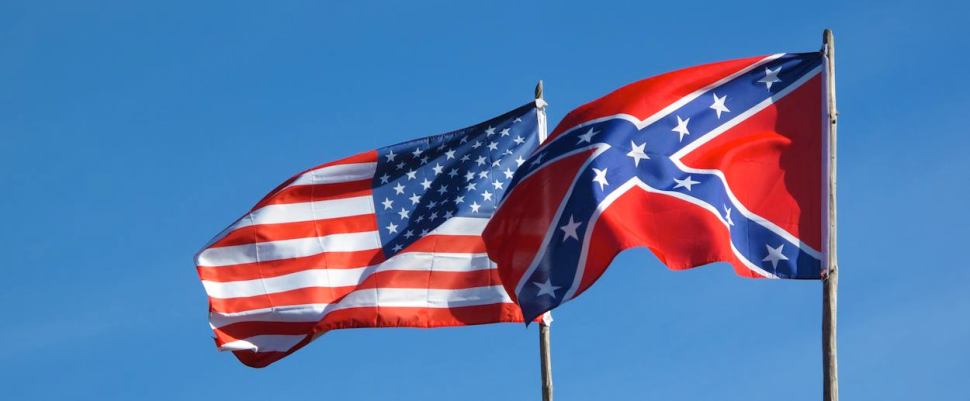
America's largest retailer is to rid its shelves of flags and other tat sporting the popular symbol of slavery and racism.
Nationwide chains Sears and Kmart will reportedly do likewise. The moves follow a turnaround by Gov. Nikki Haley of South Carolina, who called yesterday for the removal of a Confederate flag from the state capitol.
The flag, always an issue of contention, came to the forefront after last week's killing of 9 people at a black church by white supremacist Dylann Roof. CNN reports on widely-circulated photos of Roof posing with Confederate and apartheid regalia.
Amazon.com lists pages of Confederate flag-related merchandise, ranging from the flag itself to folding knives, T-shirts, blankets and even shower curtains.
eBay also carries the Confederate flag and accessories such as handbags and jewelry. The online auction site's "offensive material policy" bans the sale of items that "promote hatred or racial supremacy including historic and current items."
Even the Republican presidential candidates seem mostly on-board with Haley's proposal. But it's too soon to say that the battle flag's time is up: it's been a long fight, writes David A. Graham at The Atlantic, and the flag is one legacy among many of the Confederacy.
It's an interesting and somewhat surprising turn for the activist movement. Until now, post-Ferguson protests have tended to focus on a single, tangible issue: police violence against people of color. As Johnetta Elzie, another high-profile activist, told Jay Caspian Kang: "Our demand is simple: Stop killing us."
The flag is a far more symbolic issue, if still clearly connected to the question of violence against black Americans. There was a gathering sense of unease already on Monday, a worry that the focus on removing the flag might provide a too-easy exit for leaders in South Carolina to declare victory and move on without grappling with deeper, systemic strains of racism in a state where the black poverty rate is nearly three times as high as the white rate; black incarcerations rates are nearly four times as high; black arrest rates are disproportionately high; and black high-school graduation rates lag white rates.





